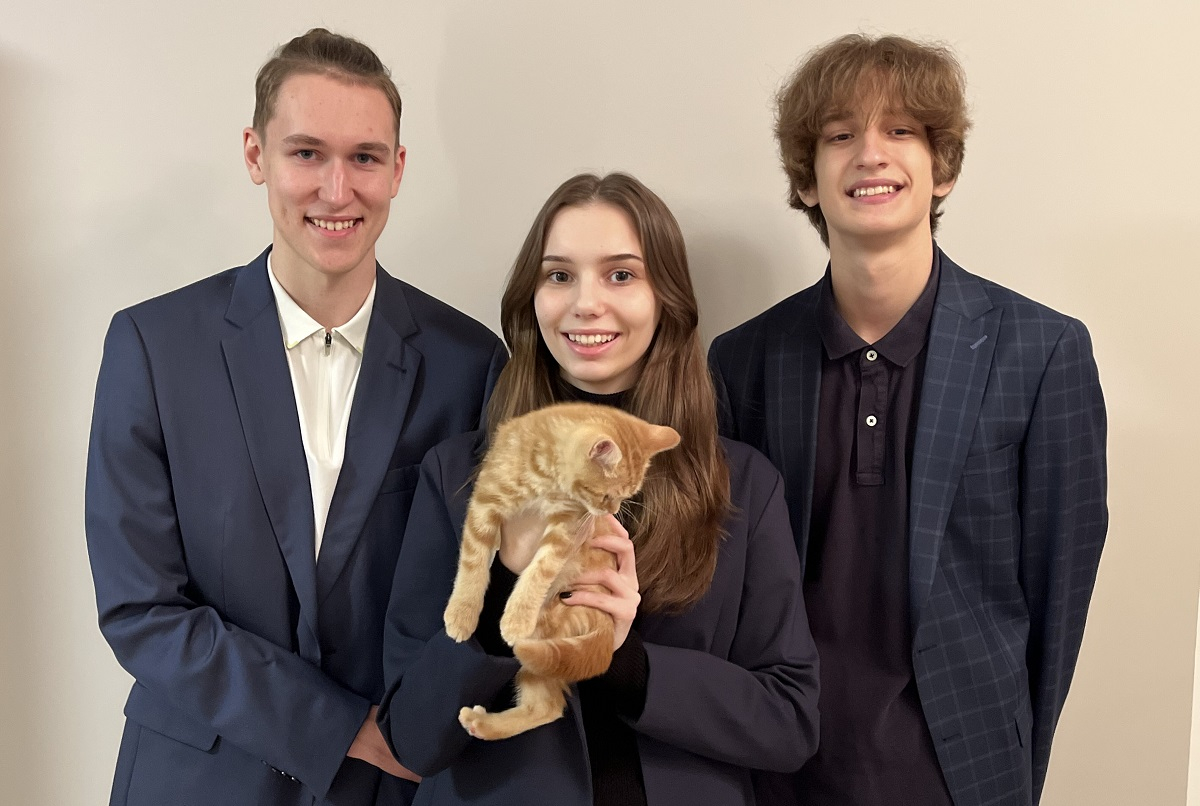St Petersburg University students develop app to search translators and sign language interpreters
The Lingvera Team, the winners of the SPbU Start-up 2022 contest, are developing an aggregator application. With its help, foreigners and people with hearing disorders will be able to find specialists in the field of oral, written, and sign language translation.
The Lingvera app, developed by students of St Petersburg University, will become the first Russian platform that will enable users to order translation services by thematic categories. For example, a specialist from the category "interpreters for casual meetings" will provide help during meetings of friends who speak different languages, or during a trip to places of recreation and entertainment. If a user wants to walk around the city and see the sights, they will be able to order the service of a guide interpreter. Such options have not been previously presented in any domestic translation service.
Additional advantages of the Lingvera app will be the simplicity of the interface, adaptability for users from different countries and the ability to place orders in just a couple of clicks. Users will not need to fill out long questionnaires and wait for several hours for the official consideration, as it usually happens in translation agencies today.
Another difficulty for foreigners is that all translation agencies that currently provide services in Russia focus mainly on Russian consumers.
Daniil Krivenko, Captain of the Lingvera Team, a first-year bachelor’s student of St Petersburg University in the International Relations programme
‘Their websites often do not provide a localised version for a foreign audience. In addition, a lot of translation bureaus allow to make an order only via a phone call, which is a serious problem for foreigners due to the language barrier. The result is that in most cases, guests arriving in Russia cannot find a translation service that meets their needs. Our application will help to fix this,’ added Daniil Krivenko, Captain of the Lingvera Team, a first-year bachelor’s student of St Petersburg University in the International Relations programme.

To order the services it will be enough for the user to log into the app, select the desired date, time, type of transfer and click the "Order" button. In case of necessity, the user will also be able to mark their location on the map embedded on the application. After that, one of the interpreters will be assigned to the user.
Additionally, the application will show various events that take place in cafes, restaurants, museums, cinemas and other venues in the city. This will enable users to navigate the cultural agenda and understand which interesting places can be visited independently or with an interpreter.
The SPbU Start-up contest has been held at the University since 2016. This year, the teams representing the most science-intensive and commercially promising business models received cash prizes from the St Petersburg University Endowment Fund in the amount of 350,000 roubles for first place and 250,000 roubles for second place (Two Teams win the SPbU Start-up contest).
According to Daniil Krivenko, Captain of the Lingvera Team, students of Russian universities will fulfil orders of the customers. ‘Students nowadays feel a great need to have their own earnings during their studying. But at the same time, there are still very few vacancies on the market for the employment of people with incomplete higher education. The positions of waiters and cashiers are mainly offered. Our application provides additional opportunities for students to practice and earn money,’ explained Daniil Krivenko.
Daniil Krivenko noted that to register in the application as contractors, students will have to pass a foreign language proficiency test at least B2 level. If candidates successfully overcome this stage, they will be allowed to work. Those who want to become interpreters and guides will need to additionally take a test of knowledge of the culture of the city. If the candidates do not cope with this task the first time, they will be given access to special educational courses and the opportunity to retake the test.
The value of the Lingvera project is that it is a unique idea. The app enables you to solve several social problems at once. At the same time, it is based on a transparent and working financial model that can bring profit to developers and attract funds for the further development of the project.
Nikolai Parfenenok, Research Supervisor, Deputy Dean for Youth Policy of the School of International Relations
‘In order for the application to pay off in six months, it is necessary to achieve a result of only 50 orders per day,’ emphasised Nikolai Parfenenok, Research Supervisor, Deputy Dean for Youth Policy of the School of International Relations.
Nikolai Parfenenok stated that the application is also easy to scale to new markets, which is the main criterion for the success of a start-up. After introduction in St Petersburg and Moscow, Lingvera can quickly start expanding all over Russia, and also cover other countries later. The developers are convinced that the application will be in demand abroad, since there are practically no analogues.
‘During the market research, we found only one foreign analogue of our platform — the City of a Thousand Welcomes programme, which is being implemented in Ireland. As part of this project, a foreigner can order a guide interpreter service through a special website. However, this programme is state-owned, and works exclusively on a limited territory, in the city of Dublin,’ continued Daniil Krivenko.
The following students are working on the Lingvera project:
- Daniil Krivenko, Captain of the Lingvera Team, a first-year bachelor’s student in the International Relations programme
- Aleksei Kiut, Technical Director, a first-year bachelor’s student in the International Relations programme
- Uliana Pavlova, Financial Director, a first-year bachelor’s student in the Economics (with Advanced Study of the Economy of China and the Chinese Language) programme
The Lingvera Team is currently finishing the development of a prototype application. The next stage of the students’ work will be the creation of MVP — a minimum viable product that will make it possible to test various functions and attract the first users.



